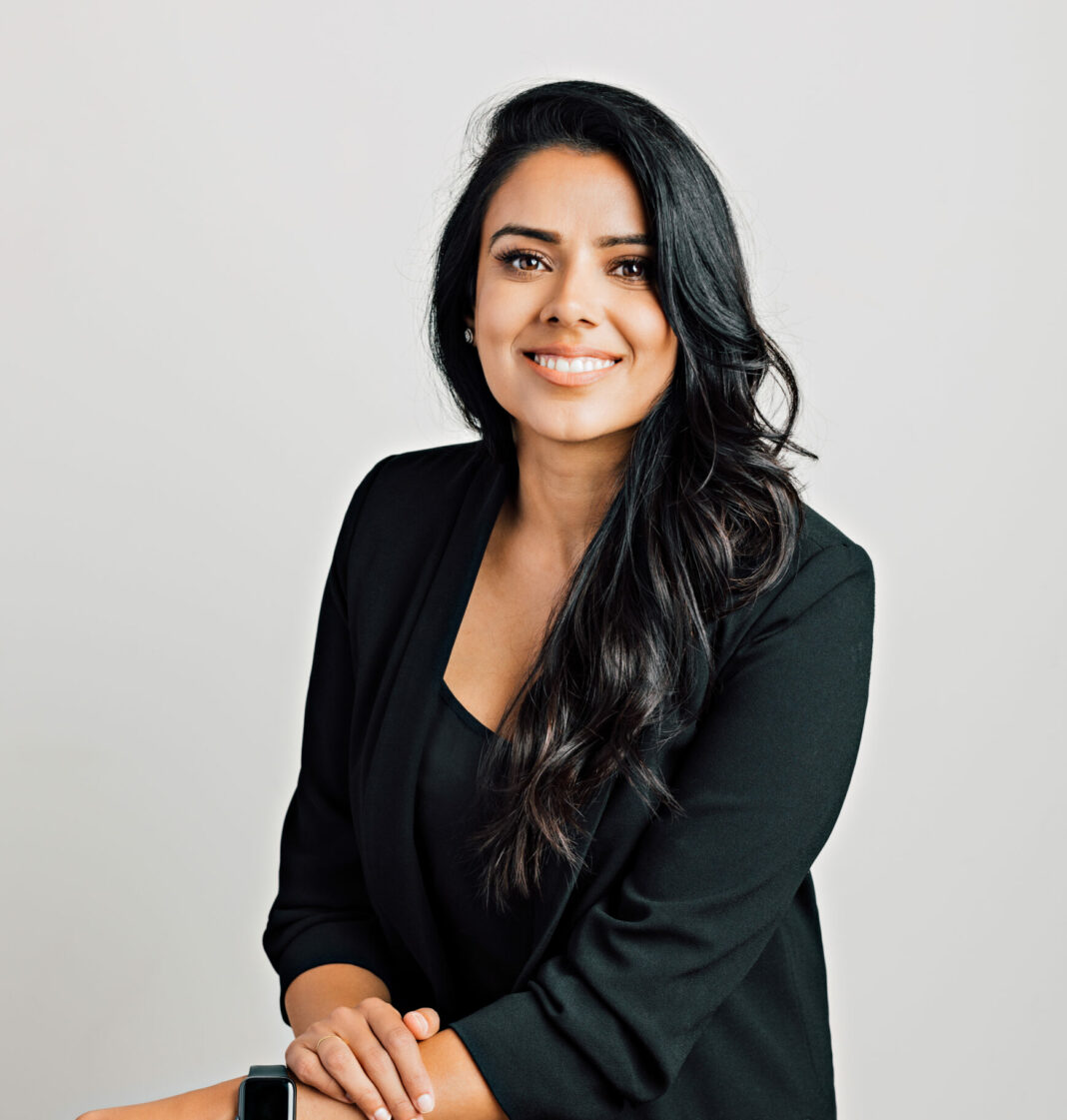Baby boomers are expected to pass on $68 trillion to their children, as what’s referred to as the greatest wealth transfer in history. The nouveau riche looks a little different too. They’re tech-savvy and more inquisitive about opportunities ranging from climate change to cryptocurrency. But at the end of the day, who’s managing their money?
This is where family offices come in. Family offices are private wealth management firms established by ultra high net worth individuals.
Contrary to popular belief that the wealthy get privileged and unbarred access to all the data on their accounts and advisors, this is surprisingly far from the truth. Simran Kang, an advisor who previously held titles under PwC, consulted for high net worth families for the majority of her career. She found evident flaws in the system, as in the lack of technology that would allow these types of firms to scale effectively and affordably. After leaving PwC to start an independent firm with her co-founder and serial entrepreneur, Alice Chen, she found herself with another challenge; being unable to serve as many clients as she wanted due to the high costs to recruit wealth management experts.
This is where the concept of MyFO was born. Founded on the belief that there should exist software that can help the regular person invest confidently and easily, like a family office. Simran shares with us the pain points of the investment world and her solution to the outdated methods of communicating investment data, her thoughts on decentralisation and cryptocurrency, and the necessity of regulation.
Interviewer: Can you tell us about what MyFO is and how it came about?

Simran: I worked at PwC and it navigated me into the family office space. I found myself providing financial education to families, guiding investment strategies, and governing boards. In 2015, I met my co-founder, Alice, while speaking on stage at PwC about family offices. What does family office mean? What are the problems that persist? Even then, we were talking about the greatest transfer of wealth, which is approximately $68 trillion globally going from one generation to the next. That transition is driving $6 trillion annually into a new market that’s transitioning hands.
People that are coming into money look different and are different than the generations before. Alice, my co-founder, for example, is a first-generation female Asian founder who had accumulated capital of her own after exiting two start-ups. She was coming into my office asking, “What are your family office clients investing in, and which investment advisors are the good ones?”
Through these inquiries, we fostered a friendship and a business relationship. Eventually, she started learning more about the family office space and suggested that we should build our own practice. We ended up building our own multi-family office, however, ran into the same scaling issues we had at PwC, which are the limitations of using highly qualified and costly human capital for scaling. We couldn’t service everyone we had wanted to because of the non-scalable economics. Charging around $500 an hour as a starting rate, we typically only took on families where we were billing up to $40,000 a year, which is still expensive even for those considered high net worth. We started to do research in an effort to find available software that could help solve this challenge. There are so many advisors out there; they must share our problem, as each advisor typically has over 300 customers.
If you have one family office that you manage, you’re probably managing in the range of $100 million. In order for you to aggregate a hundred million assets under management at a lower per-customer rate, you would need hundreds of customers to get there. Your touch points become less frequent.
We thought, “Okay, well, how much of this process that we run with families can we digitise?” There are two problems; one is that family offices aren’t happy because it requires human capital. It’s slow, and it’s archaic. Even when there’s a solution they can afford, it’s not optimised. Then you have a whole demographic that can’t even afford it. It’s not accessible. When we thought about building a platform, we thought, why not build something that’s catered to this market, make it scalable, reusable, repeatable, and then also make it accessible to everybody else?
Interviewer: Does the rise of decentralisation and cryptocurrency threaten the future of banks? If so, how do you think they can meet this challenge?
Simran: There’s still a lot that needs to be discovered and understood when it comes to decentralisation and crypto. I think over time, there is going to be a marriage of banking and decentralisation. There needs to be a way for the common person to do banking without all the noise and friction that comes with transactions and investing. That is what is trying to be created with decentralisation.
I don’t think at this point in time we can foresee what the future of it looks like. Take FTX. That’s an example of a company that was making a go at innovative, forward-thinking in the decentralisation sector. However, it’s obviously not the way it should have been done. Although, there is still a lot of value in the idea of blockchain and in that technology. Ultimately, we need to find a way to couple that with regulation because we can’t have an unregulated, decentralised market.
Interviewer: Can you elaborate on your general thoughts on business and financial regulation?
Simran: I bring up FTX simply because I’m so fascinated by it. To be clear, the reason that all this fraud was perpetrated isn’t a reflection of crypto; it’s a reflection of bad governance in a business.
They didn’t have a CFO, which is mind-boggling if you’re an $8 billion company. You have unchecked transactions happening, which is basically Enron all over again. That type of financial regulation and disclosure should be a requirement for any other company of that size. Crypto is not a preventative mechanism for managing bad transactions. When you have one person spending the money, and there are no checks and balances on cash flow and approvals for expenditures—this is a recipe for disaster. These are basic internal controls that a company should have. So I don’t think it’s not necessarily a reflection of crypto or centralization.
Interviewer: With banks going digital, how do you think we can bridge the gap between the elderly, or the digitally illiterate, and the more tech-savvy young generation?
Simran: The interesting thing that happened with the pandemic is that it forced every generation to adopt the technology. I think if my grandmother, who’s 96, doesn’t want to adopt it, that makes sense, but if I can empower my parents to use it in their retirement years, that’s a win. The real solution to creating digitisation intergenerationally is implementing smart UX/ UI. The problem with banking software right now is that it’s expensive and archaic. Even when we looked at family office software, much of it looks like 1980s Microsoft. It’s hard to use and takes months to onboard somebody. If I can’t figure out how to add an investment asset here, how can I possibly expect somebody else to know how?
Forget about what banking technology is out there; let’s start from scratch and build something that’s intuitive to use.
Interviewer: Would you say banks are more open-minded or rigid when it comes to change? What drives their decision-making (ie. making drastic switches to tech platforms..etc)
Simran: I think they are open-minded but have very rigid processes for implementing change. That’s been our experience because when we came up with this idea, we wanted to partner with a bank to build it, but they moved too slowly. I didn’t really want to be a tech entrepreneur. I thought everybody saw this pain point. It’s in our faces, and it affects the way we work every day, so why don’t we build it together? As with any large institution, the banks are like this huge machine that’s really hard to move. I think of it like family offices. The bigger your family gets, the harder it becomes to move them because you need to get buy-in from everybody.
The smartest banks are the ones making strategic acquisitions or investing in fintech at an early stage. Some of these banks are creating incubators and venture arms and investing in fintech startups that will become smart acquisitions for them in the future. Because let’s face it, banks are not great at building tech.
Interviewer: What’s your ultimate goal for MyFO. And are there any other fintech innovations you’re excited about?
Simran: I think I’m really excited about this whole space in the family office. My ultimate goal is to create a platform that allows everybody to feel like they can manage their money like a billionaire. You can manage your money and have the same tools as a billionaire. If you do have billions of dollars, you’re on a digital platform, and you’re not stressed about what’s happening in your family office; you have clear data and information. So what it really comes down to is making people feel like they are actually in charge of their money. That’s my end goal.
Conclusion: Digitalization is En route and Here to Stay
Amongst many of the legacy industries, banking remains modest on fully adopting digitalization and tech. The decentralisation movement was one way to counter the outdated, archaic structures, but we’re just on the tail of it. Software solutions like Kang’s MyFO could be more of a plausible start in this leap towards smoother communication, documentation, and transactions between the person that wants to invest, and an advisor that wants to maintain the same or higher bandwidth of clients with the same degree of attention. Creating a scalable solution to this unique industry problem may be the way to break into the $68 trillion industry.
